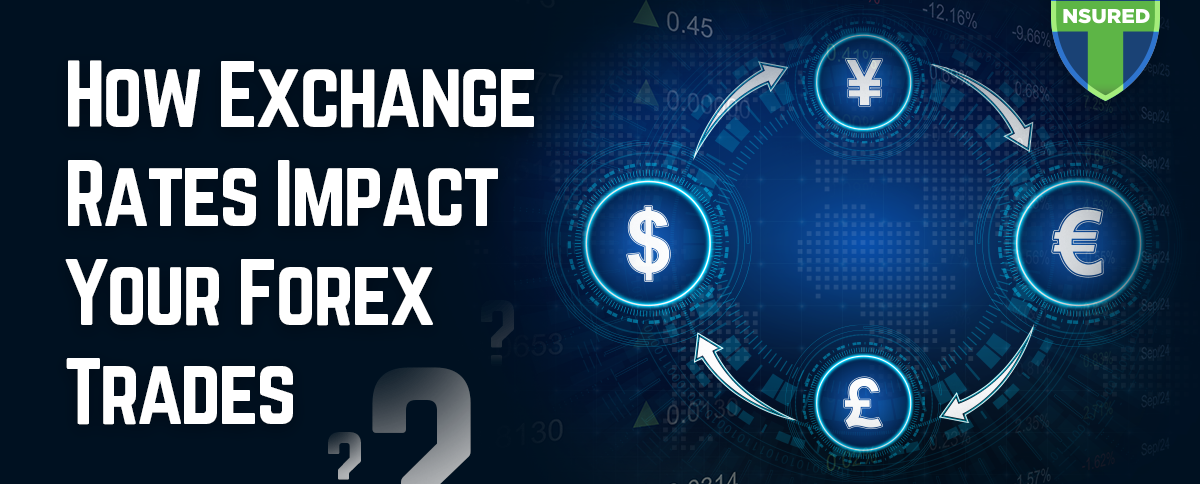
Hi Traders, We are back with a new concepts “How Exchange Rates Impact Your Forex Trades“.
Let me tell you a story that will help you understand how exchange rates impact your forex trades.
Imagine you are running a small business, and you sell handmade furniture.Let’s say you’re based in the United States, but you want to sell your furniture to people in Europe. To do that, you need to deal with currencies because your customers in Europe will pay you in euros, not dollars. Here’s where exchange rates come in. Exchange rates are like the value of one country’s money compared to another country’s money. If the value of the US dollar is strong compared to the euro, then it will cost more euros for your European customers to buy your furniture. This could lead to fewer customers buying from you because it’s more expensive for them.
On the other hand, if the US dollar weakens compared to the euro, it will be cheaper for your European customers to buy your furniture. They might want to buy more because it’s a great deal for them, and you’ll see more sales!
Now, let’s talk about imports. Imagine you also need to buy some special materials from Europe to make your furniture, like high-quality wood. If the value of the dollar is strong, it will be cheaper for you to buy that wood because it takes fewer dollars to exchange for euros. This helps you save money and keep your costs low.
However, if the dollar weakens, you’ll need more dollars to buy the same amount of wood from Europe, making it more expensive. You might need to raise your prices to cover
the increased cost. So, here’s the key point: when the exchange rate changes, it can make exports (things you sell to other countries) more or less expensive, and it can also affect the cost of imports (things you buy from other countries).
Putting it into Forex Terms:
In the world of forex (foreign exchange) trading, you’re dealing with buying and selling currencies. When you see that the exchange rate between two currencies is changing,
it means that one currency is becoming more valuable or less valuable than the other. A strong currency means it’s expensive for people in other countries to buy your products, and a weak currency makes your products cheaper for others to buy. As a forex trader, these changes can create opportunities for profit. For example, if you believe that the US dollar is going to strengthen against the euro, you might buy dollars now and sell them later when their value goes up.
The Big Takeaway:
Strong currency = exports decrease, imports increase.
Weak currency = exports increase, imports decrease.
So, whether you’re trading in the forex market or running a business, understanding how exchange rates work will help you make smarter decisions.
—- > Some more factors which impact Your Forex Trades
Exchange rates play a vital role in Forex trading because they directly affect the value of currencies. When one country’s exports are higher than its imports, demand for its
currency increases, making it stronger. For example, if the US buys more coffee from Brazil, the demand for the Brazilian real (BRL) rises, strengthening it against the US Dollar.
1- Inflation:
Higher inflation decreases the purchasing power of a currency. If the UK’s inflation rate rises by 10%, the British Pound (GBP) weakens. Traders monitor inflation through the
Consumer Price Index (CPI), as it influences exchange rates. For example, if the US has 2% inflation and the UK has 10%, the GBP/USD rate should drop in favor of the US Dollar.
2- Interest Rates:
Higher interest rates attract foreign investment, which boosts demand for a country’s currency. For example, when the US Federal Reserve raised interest rates sharply in 2022,
the US Dollar strengthened, making other currencies weaker. Low interest rates, on the other hand, can weaken a currency.
3- Economic Indicators & Political Stability:
Economic health, measured by factors like GDP, government debt, and unemployment, also affects currency value. A strong economy leads to a stronger currency. Political instability, on the other hand, makes a country less attractive for investment and weakens its currency.
4- Market Sentiment:
Traders often predict a currency’s rise or fall before it happens, buying or selling accordingly. This creates price swings based on market expectations, which can affect your
trades.
Understanding how these factors influence currency values helps you make better Forex trading decisions and manage risk effectively.


